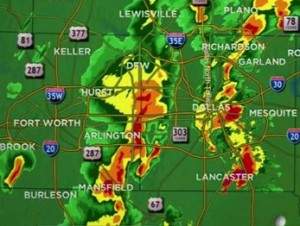 Steps to take to prepare for Spring storms
Steps to take to prepare for Spring storms
Spring can often bring unpredictable and severe weather. Thunderstorms, tornadoes, hailstorms and high wind can have damaging effects on people and property.
The following are some steps you can suggest your clients take to help them be ready for spring storms:
- Review your insurance policy. Update any necessary information such as location addresses, size of the deductible, and the current insured value of both your contents and home.
- Evaluate your need for flood insurance. Many areas of the country saw an unusually large amount of snowfall this winter and as that snow starts melting, the water has to go somewhere. If it’s your basement, understand that your homeowner’s policy will not pay for that water damage.
- Maintain home repairs. Make sure your home is in tiptop shape by having a local contractor inspect your roof, gutters, and HVAC system for damage or clogging. Make any necessary repairs, and clean air ducts and replace filters.
- Create or update your Go Bag. If you have to leave your home in a hurry, would you have the essential items you needed ready to go at a moment’s notice? You can purchase a Go Bag at popular websites like Amazon and eBay. Or you can simply make a list of the items that you need to include and purchase them locally.
- Have a list of important personal information. Telephone numbers of family & friends, insurance and property information, telephone numbers for utility companies, and medical information on you and family members.
- Have a communication plan. Family members may not be in the same place when a disaster strikes so think through beforehand how you will communicate with each other. Cell phones may not work well after a disaster if cell towers are damaged. Text messaging may have a higher likelihood of getting through. You can also designate a family member who is not in your local area to be your contact person.
Prepare your family members for the possibility of severe weather. Tell them where to seek appropriate shelter as soon as they are aware of an approaching storm. Practice your emergency plan for every type of severe weather. Show family members where the emergency supplies are stored, and make sure they know how to turn off the water, gas and electricity to your home.
Unfortunately, few of us get much advance notice of severe weather events. Often by the time we are aware of an approaching storm, we have little time to prepare for it. But we do know spring often brings thunderstorms, tornadoes, and flooding possibilities. So why not take the surprise factor out of severe weather and prepare yourself, your family, and your property?

